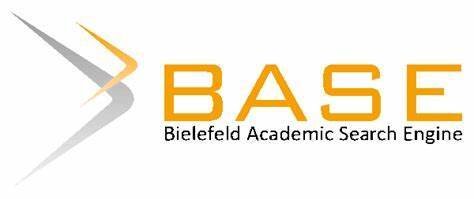The Right to Employment and Protection From Unemployment: A Theoretical and Practical Review of Article 23 Paragraph 1 of The 1945 Constitution From The Perspective of Islamic Law
DOI:
https://doi.org/10.65049/p8xjj791Keywords:
Constitution, Maqashid Sharia, UDHR, Islamic LawAbstract
This study aims to examine the normative dimension of the right to work and protection against unemployment as stipulated in Article 23(1) of the Universal Declaration of Human Rights (UDHR), and to explore its alignment with fundamental principles in Islamic law through the maqāṣid al-sharī‘ah approach. The right to work is not merely an economic entitlement but a manifestation of human dignity and social justice. In this context, the state bears both constitutional and moral responsibilities to ensure equitable access to decent employment and adequate protection against unemployment. Employing a normative juridical method combined with conceptual analysis, comparative legal study, and statutory review, this research investigates the interplay between the international human rights legal framework and the ethical-legal constructions within Islamic jurisprudence, which prioritize values of protection, justice, and welfare. The study further evaluates the practical implementation in Indonesia, a country characterized by legal pluralism. Findings reveal a persistent gap between normative ideals and empirical realities, particularly in developing countries facing structural challenges such as high unemployment rates, labor market segmentation, and weak labor law enforcement. In this regard, the values of ḥifẓ al-nafs (protection of life), ḥifẓ al-māl (protection of wealth), and ḥifẓ al-‘ird (protection of dignity) in maqāṣid al-sharī‘ah offer a complementary and ethically grounded legal framework to strengthen the recognition and realization of the right to work. This study contributes conceptually to the advancement of labor justice discourse rooted in legal pluralism and serves as a normative reference for the formulation of inclusive and human-centered employment policies.
Downloads
References
Amalia, E. &. (2022). Perlindungan Hukum terhadap Hak Pekerja dalam Perspektif Islam dan Hak Asasi Manusia. Al-Syir’ah: Jurnal Ilmu Syari’ah dan Hukum, Vol. 20, No. 2, 152.
Bachri, S. L. (2021). Strategi Ekonomi Islam Untuk Pembangunan Sistem Ekonomi Pancasila di Desa Sukawijaya Tambelang Bekasi. Prosiding EMAS, 1(1), 87-100.
Damanhuri, F. (2013). Teori keadilan Menurut John Rawls. Jurnal TAPI, 9(2), 30-44.
Karo, F. A. (2024). Analisis Kausalitas antara Pengangguran, Kemiskinan, dan Pertumbuhan Ekonomi di Wilayah Sumatera Bagian Selatan. Jurnal IlmiahEkonomi dan Bisnis, 12(1), 315-1328.
Majid, M. S. (2023). Mengentaskan Kemiskinan Rakyat Aceh dengan Syari'ah. Media Syari'ah. Media Syari'ah, 15(2), 215-226.
Nasih, M. (2021). Empat Puluh Hadits Pilihan untuk Memperkokoh Komitmen Berislam dalam Segala Aspek Kehidupan . Jakarta: Monasmuda Institute & Planet NUFO.
Nurdin, M. &. (2023). Pengelolaan Anggaran Negara Berbasis Keadilan Sosial dalam Perspektif Hukum dan Etika Islam. Jurnal Legislasi Indonesia, 20(1), 45-60.
Nurfainna Nasir, Z. M. (2024). Protection of Maternity Rights of Women Workers in Makassar City: A Review of Islamic Law and the Implementation of the Labor Law. Shautuna: Jurnal Ilmiah Mahasiswa Perbandingan Mazhab, Vol. 6, No. 1 , 37-52.
Rahmat, S. F. (2023). Normative Juridical Approach as an Analytical Tool for Socio-Economic Rights in Islamic Law and Human Rights. Jurnal Hukum IUS QUIA IUSTUM, vol. 30, no. 1, 45-60.
Rakhmawan Suherli, I. N. (2024). Negara sebagai Mediator Tumbuh Kembangnya Ekonomi Berbasis Syariah: Perspektif Filsafat. Eco-Iqtishodi: Jurnal Ilmiah Ekonomi dan Keuangan Syariah, 5(2), 113-130.
Rauf, A. A. (2020). Al-Qur’anul karim al-ḥāfiẓ. Kordoba: Kordoba.
Robby Kurniawan. (2023). Maqāṣid al-Sharīʿah and the Development of Human Rights. Al-Mazaahib: Journal of Comparative Law, Vol. 9, No. 1, 25-38.
Rofiq, A. &. (2023). Implementasi Hak Atas Pekerjaan dalam Perspektif Hukum Nasional dan Hukum Islam: Analisis Pasal 23 UDHR dan Peran Negara. Jurnal Hukum dan Peradilan Islam, Vol. 14, No. 1, 5.
Santrianti, A. T. (2022). Kebijakan Pemerintah Terhadap Perlindungan Hak Pekerja Freelance (Harian Lepas) di Indonesia. Opini de Jurnal, 2(1), 46-69.
Setiawan, A. W. (2023). The Normative Juridical Method in Comparative Legal Studies: An Analysis of Labor Rights in Islam and Positive Law. Jurnal Konstitusi dan Hukum Islam, vol. 14, no. 2, 112-129.
Siregar, E. S. (2021). The Implementation of Maqāṣid al-Sharīʿah Principles in Islamic Business Contracts: A Juridical Review of Compliance and Justice. Juris Sinergi Journal, Vol. 3, No. 2, 97-110.
Siti Kunarti, U. S. (2023). Perspective of Employment Relations and Wages in Labor Law and Islamic Law. Samarah: Jurnal Hukum Keluarga dan Hukum Islam, Vol. 7, No. 2, 557-578.
Suhaimi, R. M. (2023). Maqāṣid al-Sharī'ah: Teori dan implementasi. Sahaja: Jurnal Syariah dan Humaniora, 2(1), 153-170.
Suharto, E. &. (2012). Program Keluarga Harapan (PKH): Memotong Mata Rantai Kemiskinan Anak Bangsa. Jurnal Aspirasi, 3(1), 1-20.
Downloads
Published
Issue
Section
License
Copyright (c) 2025 Dian Rismayanti (Author)

This work is licensed under a Creative Commons Attribution-ShareAlike 4.0 International License.















